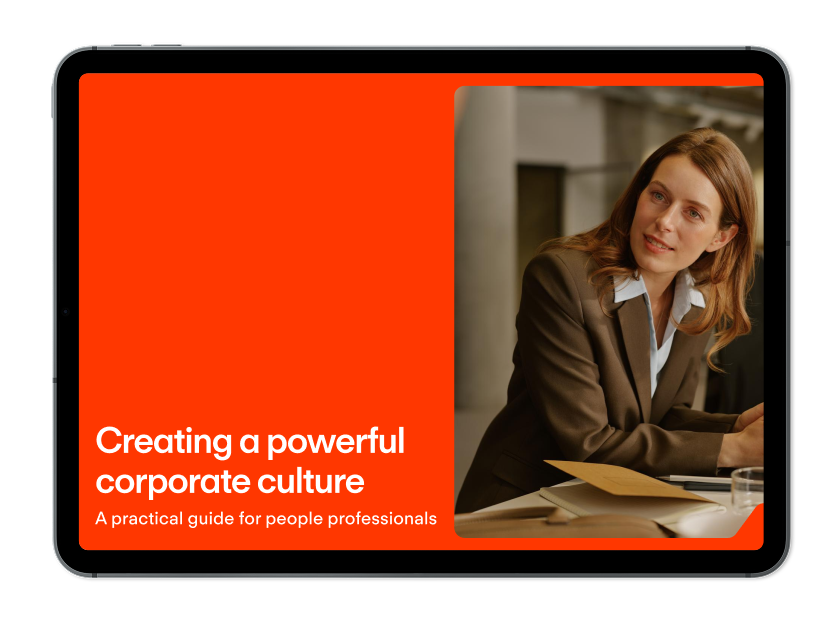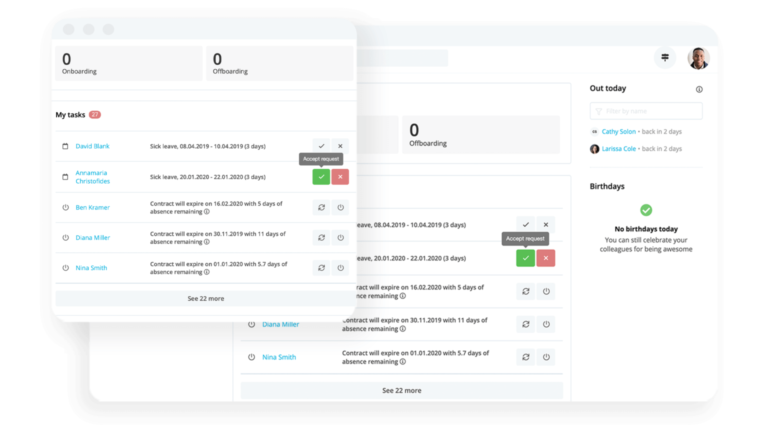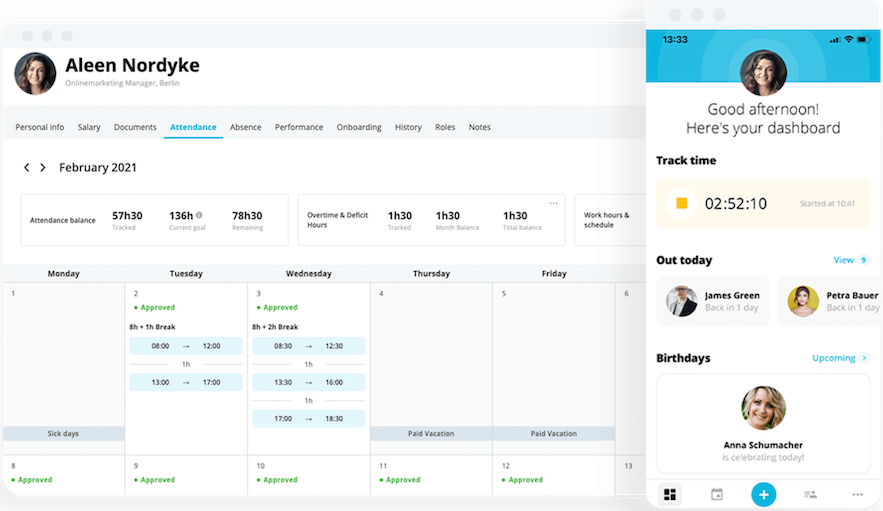OD in HR: The Key Role of Organisational Development

At the heart of every successful organisation is a commitment to what is known as the organisational development (OD) model. The term itself is understood as the key to performance, and sustainability, as an organisation grows and changes.
Let’s explore this topic further, and what it could mean for your business, as well as HR more generally, right now…
You can download our guide to corporate culture right here.
What Is Organisational Development?
Organisational development (OD) is a model to understand how HR can make changes in an organisation. It is done by aligning organisational structure, corporate culture and various ways of working to respond to help businesses succeed.
OD in HR typically revolves around processes including:
Managing employee wellbeing and potential burnout
Performance management cycles and conversations
Document and HR process management
Why Does OD Matter For HR Leaders?
Organisational development matters because it involves changes and improvements of processes that are part of an HR team’s core responsibilities. These might include how performance is rated, the way talent is handled, diversity in the workplace and more.
What Does OD Try To Address?
Developed by Kurt Lewin in the 1930s, the organisational development model is based on concepts of group dynamics and action research. It all started by emphasising participative methods in small groups leading to larger changes.
If a company is seeking to perform at its best or to realise a competitive advantage, there exists a constant commitment to learning and development. And, as a byproduct of this development, change becomes a necessary element.
In a more traditional sense, companies may try to institute this from a top-down approach. That would mean changes suggested by management, assigned to employees, with a collective hope that these things take and become permanent.
But, that is often more hopeful than practical. While it may be inspirational, it is not always sustainable, which is what the principles of organisational development are built upon
Essentially, organisational development models are an attempt to holistically treat these matters to change the way people work, the culture of an organisation, all in order to create a real return on investment and to drive the bottom line.
5 Key Factors for Organisational Development
Now that we know a bit more about why the organisational development model exists, we need to understand what makes it impactful. What are its core tenets?
In short, organisational development facilitates success by doing the following:
Changing various elements of any given job through to the entire organisation
Applying scientific methods to transform an organisation from within
Involving more members of an organisation into strategic processes
Promoting core values that help add real, lived examples to a company’s mission
Instituting and adapting to changes in a flexible and participative way
It essentially loops in more stakeholders, creating more people involved in the process, so that both the process and the outcome are ultimately shaped by those same stakeholders.
In sum, it is a sense of ownership throughout the organisation, and a way of approaching it, that helps to develop the organisation as a single entity (and not splintered parts).
Why Is The Organisational Development Model Helpful?
At its core, organisational development is reliant on one thing: people. It is an understanding of the potential of people, and the transformative effect that they can have on business.
In that sense, organisational development places an emphasis on continuous improvement, increased communication, innovation, and overall business success through productivity and creativity (treating them as key elements and not a means to an end).
All in all, when you have proper organisational development, you also have a strong culture that has ingrained, well-defined, and lived values (click here to learn more about creating and communicating your company’s core values).
Essentially, you develop your organisation in a way that makes sense to everyone involved, including those who may be joining for the first time. That way, you can hire, develop, and retain top talent, because they feel as though they are developing along with the company, too.
Guide: A strong culture powers everything

Expert insights and step-by-step instruction to crafting a lasting corporate culture. Download our guide to leverage culture for corporate success today.
Download the guideHow Does OD Help HR?
Based on everything we discussed, it’s easy to see why HR could benefit from organisational development as a concept. That’s because of how much it focuses on people, and makes them feel part of an organisation in a very holistic fashion.
In fact, both organisational development and HR need one another, since positive development makes the job of HR easier and more fulfilling. When they are aligned, HR can deliver strategic initiatives that make sense for an organisation and lead to even greater returns.
Consider things such as change management or building meaningful change management processes (click here to read more about both). When HR has the time to focus on these things, it becomes easier to make a marked difference in the way business is conducted (and the way companies, therefore, perform).
This even applies to some of the day-to-day tasks for HR, because things like salaries and absences are influenced by a core organisational development strategy. It makes it easier for employees to understand why these things are happening because they are involved in the process.
Organisational Development as a Continuous Process
All in all, organisational development is not a one-time affair. It is a continuous process, and it should be treated as such, and this is especially true for companies who are growing and changing on a quarterly basis.
If an organisation is looking to grow, organisational development can help give them a framework for success. This can be done through the people within the organisation, who come to define that success and give it life.
It can then be the role of strategic HR to collect the data, analyse it, and implement new systems based on that development. This could be especially relevant when it comes to performance management or staff appraisals (click here to learn more about how staff appraisals can have a better effect on business).
This could include:
Explaining why new changes are made
Surveying employees to see how they feel
Figuring out which messaging will resonate
Rolling out a plan to institute those changes
Collecting feedback following implementation
What Is A Common Process For OD?
There are traditional seven steps that make up the process of organisational development:
Step | Explained |
|---|---|
Entering & Contracting | When a manager spots an opportunity for improvement. |
Diagnostics | Figuring out how current systems work and where they succeed or fail. |
Data Collection & Analytics | Existing data, interviews, observations, and more. |
Feedback | Taking the first three steps and communicating them effectively. |
Designing Interventions | The changes that need to be made and how they will be tracked. |
Leading & Managing Change | Making those changes in a meaningful way. |
Evaluation Of Change | Determining if the aforementioned changes were successful. |
Organisational Development: A Critical Process For Change
As we have learned today, organisational development is a multi-faceted and people-focused approach to changes or improvements in an organisation. If handled correctly, it can not only drive business but overall satisfaction and retention, too.

